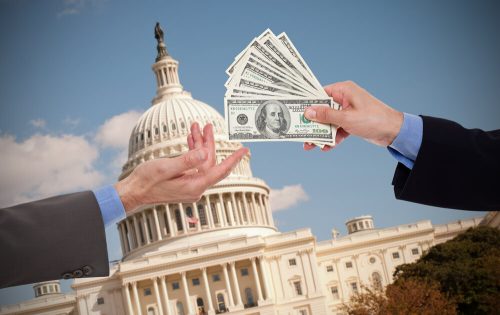Supreme Court Justice Louis D. Brandeis (1856-1941)
Last week, former President Donald Trump was indicted on charges related to his efforts to overturn the legitimate democratic results of the 2020 election. The announcement comes on the heels of Trump’s other two indictments: one in connection with an illegal hush money payment to an adult film star and another relating to his possession of classified documents after leaving the White House. Trump may also face legal trouble in Georgia; the Atlanta district attorney will soon present the findings of an investigation into Trump’s efforts to interfere with the 2020 election in the state to a grand jury.
These indictments, particularly the most recent, are historic. Donald Trump is the first current or former president in American history to face criminal charges; if he is convicted in any of these cases, he could be the first president to face time in prison. These cases are critical to ensure that no one, not even a billionaire former president of the United States, is above the law – and certainly that no one can attempt to overturn our democracy with impunity.
It’s easy and tempting to view a figure like Donald Trump as an anomaly. His brash, outrageous, and belligerent personal style and flagrant willingness to flout norms, customs, and laws certainly represented new territory for a president. But make no mistake about it: Donald Trump was the inevitable consequence of a handful of far-right oligarchs that, over the last few decades, funded the movement that enabled and empowered would-be authoritarians like him. As former President Obama once said, “It did not start with Donald Trump. He is a symptom, not a cause.”
For one thing, the tragedy that unfolded at the Capitol on January 6th – including the nine lives that were lost and the estimated $2.7 million in property damages – would not have happened were it not for a handful of ultra-wealthy, far-right donors. The “Save America” rally that immediately preceded the attack on the Capitol is estimated to have cost around $3 million. Most of that funding came from a handful of dark money groups, which themselves were financed by a few wealthy individuals. One notable donor was Publix supermarket heiress Julie Jenkins Fancelli, who alone gave $650,000 to rally organizers just eight days before the event.
That money paid for the robocalls, staging, sound systems, and port-a-potties that made the rally into the infamously massive event that it was. More importantly, it gave Donald Trump and his associates a platform with which to spew lies about the 2020 election and incite their followers to violence at the Capitol.
It’s important to keep in mind, however, that Donald Trump’s rise to power would not have been possible without the yearslong campaign that a few far-right billionaires waged to reshape American politics. These billionaires – including Peter Thiel, Carl Icahn, Robert Mercer, and Wilbur Ross – donated millions to Trump’s 2016 and 2020 campaigns. Other billionaires may not have financially supported Trump directly, but instead bankrolled the larger conservative apparatus that made him palatable to voters. For example, in 2021, billionaire Barre Seid gave a record $1.6 billion to a conservative nonprofit run by Leonard Leo, the mastermind behind the conservative takeover of the Supreme Court. And while Charles Koch has publicly opposed Trump, he and his late brother David spent millions funding libertarian think tanks, which serve as ideological breeding grounds for acolytes of Trump and other right-wing figures.
The conservative Justices on the Supreme Court, most notably those in the majority of the 2010 Citizens United decision, like to argue that money is speech in America, and therefore there should be few limits on spending in elections. This radical legal theory has upended our elections and conclusively demonstrated something more fundamental: money is not speech, but power. All of us have a right to express ourselves, but not all of us have the vast wealth required to broadcast our political opinions or sway elections toward our preferred outcomes. The practical outcome of this is that a select few extraordinarily wealthy individuals are wielding ever-growing amounts of influence in our political system. A new cohort of oligarchs are emerging, and the consequences were made clear on January 6, 2021.
We are living in a system where the voices of the wealthy and well-connected effectively drown out those of everyday working people. Studies show that public policy outcomes overwhelmingly reflect the interests and preferences of the wealthy in America. It’s not a mystery why this is the case. Can we really say that we live in a democracy when elected officials are only responsive to the wishes of a handful of wealthy people?
Holding Trump and his associates accountable for their actions on January 6th and the weeks leading up to it is critical for protecting our democracy. But in order to ensure our democracy does not slide further into an oligarchy, we need to address the underlying forces that brought Trump to power in the first place. Specifically, we need to reduce the influence of big money in our politics by reforming our campaign finance and lobbying systems. We also need to tax extreme wealth – by enacting legislation like our recently proposed OLIGARCH Act – in order to tackle the political and social instability brought on by extreme wealth inequality.
The late Supreme Court Justice Louis D. Brandeis was right: we have to choose between democracy and extreme wealth concentration. For some time now, America has chosen extreme wealth concentration. It’s time we choose democracy again.
